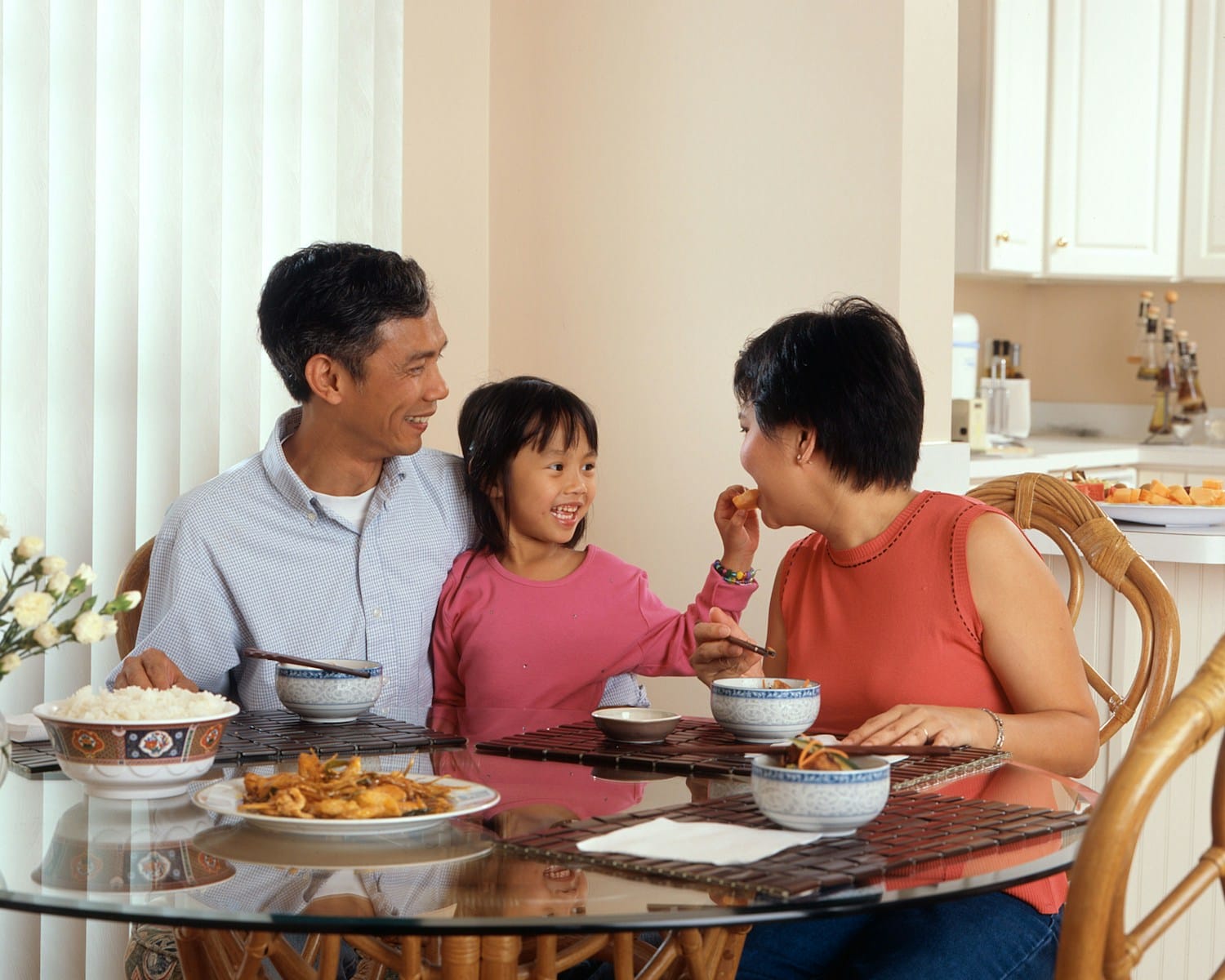This scene should be too familiar to every Chinese youth: late at night, at the desk, opening homework, a not-that-satisfying grade report, scolding or sighing parents, and the crying child. Behind the phenomenon, is the anxiety of getting higher education and gaining enough competitiveness against peers that was passed on from generation to generation in Asian families.
Psychological stress and emotional tension built up within the family, but there lack of discussion about emotions. I’ve never doubted that my parents love me wholeheartedly and I equally love them back, but I cannot help myself thinking, could anything be different if I can get a little more recognition and agreement from my parents growing up?
Recently I saw an interesting trend on Chinese social media. A lot of young people shared how their childhood experiences sounded astonishing to Western friends and therapists. I remember someone commented “Trauma? I call it life.” There may be some exaggeration in that statement, but I must admit it was to some extent true looking back at my teenage years. Under the traditional golden principle of Kongfuzsu’s “Xiao(孝)”, children should be thankful to their parents in the form of always listening and following their guidance.
It is not “Xiao” to talk against the parent, neither is it “Xiao” to disobey. However, I was never an obedient child, especially in my teens. Foreseeably, my puberty brought a blast in the family. I remember so clearly that one night my father was so sick of teaching me because I could not ‘just stay quiet and listen to him’, that he started to tear up my exam paper, my notebook, and my novels while yelling at me. I was screaming, thinking that might be the moment I finally went crazy, and accidentally slammed into the window – the sound of the window glass breaking that I would never be able to forget.
This was the worst piece memory, but a few nights throughout my middle school were completely peaceful, safe from screaming and crying. To clarify, I was not a bad student at all. I was the most regular: mid-grades, occasionally could be one of the tops of my class, had some friends but nothing near popular, and the worst thing I could do was to chat with my friends in class and steal my cell phone out from my parents and bring it to school (yes my cell phones were locked up by my parents when my grades were not good enough and yes Chinese teenagers are typically forbidden from using smartphones, especially at school).
I don’t know if this sounds terrifying to anyone, but my experience was far from the worst. I still feel anxious when I see video clips of Asian parents crying that their children are not academically competent or focusing on studies enough ten years from those times, even when I’ve gained inner power and motivation later in life. Many of those clips look much worse than what I’ve experienced.
I know, even then, that my parents loved me and thus wanted to raise me to be a good, educated, and successful person, starting from satisfying academic records. When they told me that “everything they did was for my good” and “I need to work harder and behave better to pay them back”, I listened. But their methods and these words, as far as I’m concerned, were neither proper nor helpful.
I hated and was tired of studying back then and I procrastinated, stayed up late, lied when I was not studying as required, and could not stay focused from time to time. These behavioral and mental health issues, though not developed into long-lasting disorders, were never addressed or discussed in the family. To my parents, these behaviors were not taken as signs that the current communication could not be conveyed to proper behavior so that their methods should be refined, but just me being lazy and trying to escape from responsibilities.
Borrowing the concept of operant conditioning from behavioral psychology, I was merely trying to avoid punishment and receive rewards, instead of establishing innate motivation or understanding the logic behind rights and wrongs. I didn’t have time to think about what I liked or disliked or develop a systematic way to learn, busy pretending to be a hardworking student and seeking every chance beyond surveillance to play.
When trying to set up a conversation with my parents about my feelings against some extremeness in their parenting styles, the most common response that I received was “Stop thinking about those whatever. You are a student. The study is your priority.” The repeated use of punishment and rewards in parenting even made me think sometimes that love from my parents was conditional: if I did not act well enough as they wished, I did not deserve their love.
It seems hard for Asian parents to explain themselves to their children. Neither do they prioritize sending compliments and emotional support. In traditional Chinese opinion, parents are responsible for a child’s misbehavior and compliments make a person arrogant.
Therefore, Asian parents would rather choose to set strict rules that monitor every behavior of the children and firmly implement the rules in the way of adding punishments when anything gets out of the way. To explain this challenge in more technical terms, most Chinese parents have a parenting style of a mix of authoritarian and neglectful. Authoritarian refers to the “my way oris the highway” parenting, reflected by a cold, one-way relationship.
Rules were made but not explained and there is little room for negotiation. Neglectful parenting, more commonly seen in fathers, refers to fulfilling the needs of the children but staying relatively uninvolved in the children’s lives. Children who grow up with authoritarian parenting are prone to have lower self-esteem, higher levels of anxiety, worse academic performance, and impulsive issues.
Both styles also lead to more vulnerability towards mental disorders, including depression, anxiety, and suicidal behavior. Many of these issues are exactly the behavioral health problems faced by Chinese and Asian youth. Logically, these parenting styles are most common in Asia, where unequally distributed educational resources and rising living costs cause a more straightforward focus on academics and less available time with children.
The stories of successful authoritarian Chinese parents, for example, Battle Hymn of the Tiger Mother, have been the holy Bible of parenting in Asian childcare markets for decades. But the most logical answer is not necessarily the best. While in the short run, authoritarian parenting could be effective in setting up discipline, it’s harmful to the ability of independent decision-making and problem-solving that directly link with adulthood competitiveness.
Thus, I always believe that authoritative parenting is the best parenting style to consider universally regardless of cultural differences. Though the expression looks similar, authoritative parents are consistent with rules but respect the child’s autonomy. While still being firm and explicit with rules, authoritative parenting also encourages staying responsive and explanatory.
This style of parenting tightens the bond of love between parents and children and helps the children develop critical thinking abilities and self-esteem. Although performing authoritative parenting could be much more time-consuming, I shall always advocate for Asian parents to at least try it outStill, thanks to my parents’ support, when I finally got so tired of a life dominated by studying and exams, I was lucky enough to choose international education and go abroad.
The conflict between “I know they love me and tried their best to give me everything to support my growth” and “I hope something could be different so that I could be more transparent about my feelings to those who are closest to me” have always been around every time I tried to think about family and intimate relationships. I believe most Chinese youth faced similar contradictions at some point in their lives. Especially for my generation, which most are the only child of the family due to the one-child policy in the late 1990s and early 2000s.
As grandparents from both sides can take care of young children, most families have parents who both work. The child gets the best possible monetary and resource support from the parents. All the love of the family is centered on us, but that does not necessarily mean we feel happy. We are thankful to our parents for all the hard work and resources they used to support us, but struggle with all the emotional pressure that comes along.
The pressure to become a top student is one part of it, but sometimes there’s also the struggle of “why am I asking for more when my parents have already given me everything they could”. Taking myself as an example, when I was a young kid, my parents rarely came to my school activities and rarely had the energy to play with me after work. My grandparents took care of me mostly throughout my childhood.
Many of my childhood diaries were about how I saw other children’s moms coming to cheer them up and wished my mother was there. Looking back, I understand her so well and I see her as a great mom – a role model, taking care of everyone in the family and achieving such success in her career, but it felt different as a young kid. Children are born with the strong desire to spend time with parents, to interact, and to hear them say “We are proud of you”. Although rational thinking after adulthood had me with nothing but admiration towards my mother, the loneliness in my memory as a child could not be removed.
Could there be a better solution that wouldn’t cause her much time, but had me feel her love as a child? This question bothered me for a long time but I had never asked it out being an adult, thinking I was asking for too much until one day I saw a post on social media. She was called the “shared mother” by more than 100 thousands of “internet children” on that platform.
Her posts were raw and simple, mostly some unedited daily pictures with a one-sentence captioncauption. But all of the posts were filled with positivity towards life, an appreciative attitude respecting everything her daughter did, and a generally happy atmosphere in the family. There was such a lovely, trusting, and happy bond between her and her daughter.
She wrote a letter to her “internet children” who felt guilty towards their parents, saying she did not expect her daughter to feel responsible for anything happening in the family, because her daughter didn’t choose to be born; and she wished only for her to feel safe and supported when she felt distressed. I was one of the children who was so touched by her genuine words.
After all, I was just hoping my mother would spend a little more time to understand what I like, even if that looks stupid or not useful to her; to show me more appreciation, even if that’sthat’s just a single sentence; and to give me more autonomy, trust me in making good, independent decisions.
In the end, I want to tell every Asian child who may share similar experiences that you are already great. Being a legit person can be unrelated to grades and accomplishments; being loved could be unconditioned; and it is always okay to say no. I also want to tell every parent who may be reading this, that you are amazing too. It is great work and an unimaginable effort to support a family and raise children.
Among two great parties, however, I do hope more communication, patience, and explicit expressions of love can happen. After all, a little more warmth and understanding can turn silent bonds into mutual respect and care – the true form of love.





Leave a Reply